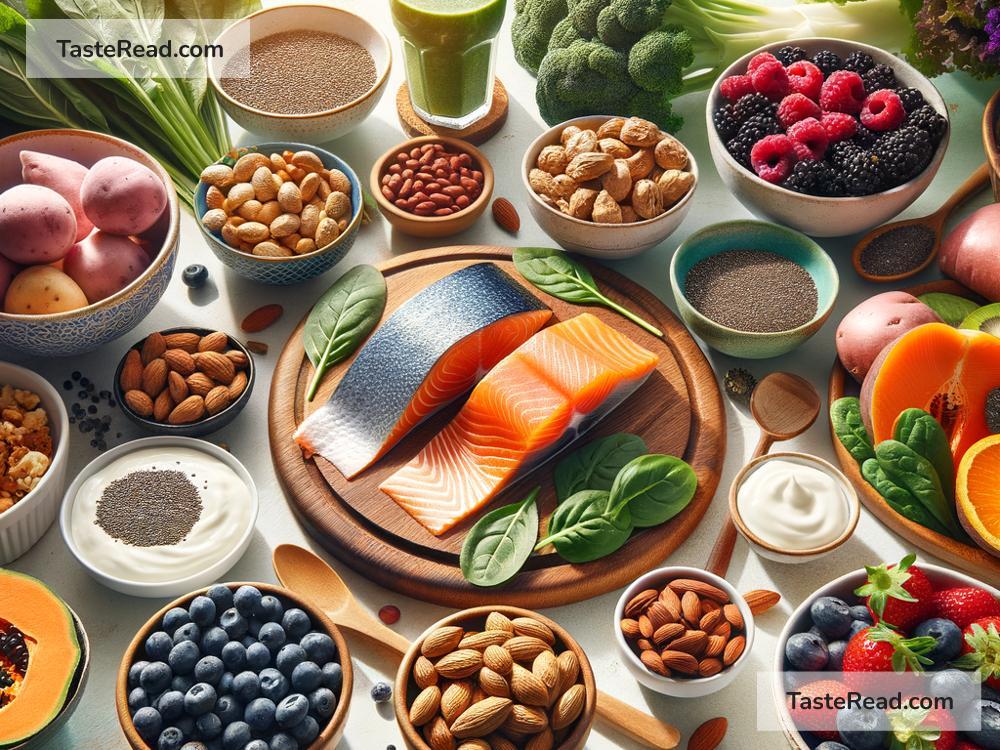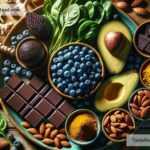The Best Foods for Recovery: Eat Your Way to Feeling Better
Recovery is an important part of maintaining a healthy body. Whether you’re healing from an injury, recovering from surgery, or bouncing back after intense workouts, what you eat plays a big role in how quickly and effectively your body can repair itself. Just like a car needs good fuel to run smoothly, your body needs the right nutrients to recover well. In this blog post, we’ll go over some simple foods that can support recovery and help you feel better faster.
Why Is Nutrition Important for Recovery?
When your body is going through a recovery process, it works hard to repair tissues, fight inflammation, and replace lost energy. This requires specific nutrients like proteins, vitamins, healthy fats, and minerals. Eating the right foods can provide your body the tools it needs to heal and become stronger. On the other hand, junk food or nutrient-deficient meals can slow down progress and make recovery more difficult.
The Best Foods for Recovery
Here’s a list of simple, everyday foods that are packed with nutrients to support your recovery process.
1. Protein-Rich Foods: Build and Repair Muscle
Protein is essential for recovery, especially if you’re healing muscle tissues damaged by exercise or injury. Protein helps build and repair cells, and it keeps you feeling fuller longer. Some protein-rich foods for recovery include:
- Eggs: Eggs are compact protein powerhouses full of amino acids, which are the building blocks of muscles. They’re easy to prepare and gentle on the stomach.
- Chicken and Turkey: These lean meats provide high-quality protein without too much fat, which makes them great for recovery.
- Fish: Salmon, tuna, and mackerel are loaded with omega-3 fatty acids that reduce inflammation while providing protein for muscle repair.
- Greek Yogurt: This creamy treat is high in protein and probiotics that promote gut health.
2. Fruits and Vegetables: Fight Inflammation and Boost Healing
Brightly colored fruits and vegetables are full of vitamins, minerals, antioxidants, and fiber, all of which help your body recover. These foods protect cells from damage and fight inflammation.
- Berries (Blueberries, Strawberries, and Raspberries): Rich in antioxidants, berries help your body repair after stress or injury. Their natural sugars also give you a small energy boost.
- Citrus Fruits (Oranges, Lemons, and Grapefruits): High in vitamin C, these fruits are great for boosting collagen production, which helps rebuild skin, tendons, and ligaments.
- Leafy Greens (Spinach, Kale, and Swiss Chard): Packed with iron, magnesium, and vitamins A and C, leafy greens support tissue repair and reduce inflammation.
- Sweet Potatoes: These tasty root vegetables provide energy, vitamin A, and antioxidants to speed up recovery.
3. Healthy Fats: Reduce Inflammation
Healthy fats are an important part of the recovery process, especially when your body needs to calm inflammation. While “fat” often gets a bad reputation, certain types of fats are actually very good for you.
- Avocados: Avocados are full of heart-healthy monounsaturated fats and vitamin E, which help reduce inflammation and keep your skin healthy.
- Nuts and Seeds (Walnuts, Almonds, Chia Seeds): These snacks contain omega-3 fatty acids, fiber, and protein that support healing and calm inflammation.
- Olive Oil: Known for its anti-inflammatory properties, olive oil is a staple in a recovery-friendly diet.
4. Whole Grains: Restore Energy
When recovering, your body needs energy. Whole grains like brown rice, oats, and quinoa are slow-burning carbs that provide steady energy. They also contain fiber, B-vitamins, and minerals to keep your body functioning well.
- Oats: These are easy to digest and provide long-lasting energy, making them great for starting your day.
- Quinoa: A complete protein packed with fiber, quinoa is both energizing and healing.
5. Hydrating Foods: Support All Body Functions
Hydration is key for recovery. If your body doesn’t have enough water, essential recovery processes will slow down. In addition to drinking plenty of water, eat foods that contain lots of water.
- Cucumbers and Celery: These crunchy veggies are high in water content and help replenish lost fluids.
- Watermelon: This refreshing fruit hydrates your body while providing vitamins A and C.
- Bone Broth: A warm and comforting option, bone broth contains water, minerals, and collagen, which are excellent for recovery.
6. Foods with Zinc and Iron: Strengthen Your Body
Zinc and iron are two minerals that boost your immune system and help your body recover faster. Foods rich in these minerals include:
- Shellfish (Oysters, Crab, Shrimp): These are great sources of zinc, which helps with wound healing.
- Red Meat: In moderation, lean red meat can supply both iron and zinc.
- Pumpkin Seeds: A plant-based option for zinc and good fats.
Simple Tips for Better Recovery Nutrition
- Eat Balanced Meals: Include protein, fruits, vegetables, healthy fats, and whole grains in every meal.
- Stay Hydrated: Drink plenty of water and eat hydrating foods. Recovery doesn’t happen well if you’re dehydrated.
- Limit Processed Foods: Avoid sugary drinks, fast food, and snacks that don’t provide much nutrition.
- Listen to Your Body: If you’re craving certain healthy foods, it may be your body’s way of asking for specific nutrients.
Conclusion
The foods you eat during recovery can make a huge difference in how quickly and effectively your body heals. Focus on nutrient-rich options like proteins, fruits and vegetables, healthy fats, whole grains, and hydrating foods. Eating well isn’t just about feeling full; it’s about giving your body the tools it needs to heal, grow stronger, and bounce back. So next time you’re recovering, be kind to your body—pick foods that help you get better, one bite at a time!


